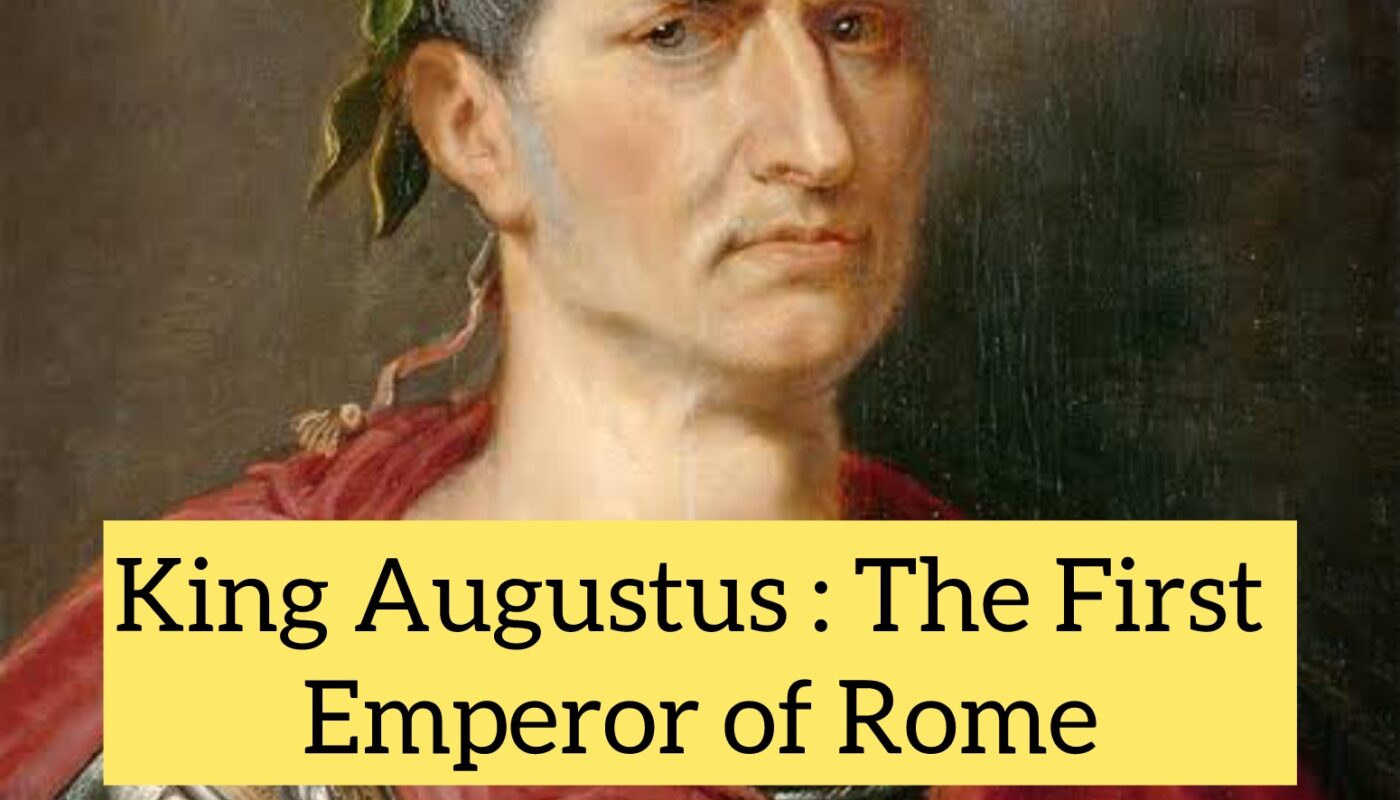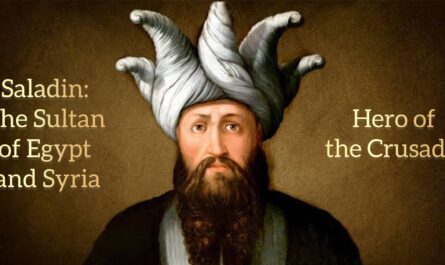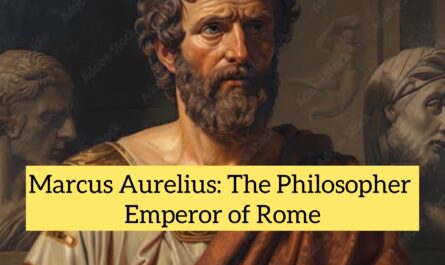Introduction
Augustus , born Gaius Octavius Thurinus (63 BCE – 14 CE), is widely regarded as one of the most successful and transformative rulers in history. As the first Roman Emperor, Augustus established the Roman Empire, which would go on to dominate much of Europe, North Africa, and the Middle East for centuries. His reign brought an end to decades of civil war, initiated significant reforms, and created a lasting legacy of Roman governance that influenced subsequent empires.
Augustus’s leadership marked the transition from the Roman Republic, which had been plagued by internal conflict, to the Roman Empire, which would endure for nearly five centuries. His policies laid the foundations for the Pax Romana, an era of relative peace and stability that lasted for over two centuries. Augustus’s ability to navigate political turmoil, his strategic consolidation of power, and his reforms in administration, culture, and society reshaped the Roman world.
Early Life and Background
Birth and Family
Augustus was born as Gaius Octavius on September 23, 63 BCE in the city of Velletri, near Rome. He came from a wealthy and influential family, though not a particularly prominent one in Roman politics at the time. His father, Gaius Octavius, was a senator and governor of Illyricum, but his family had no direct claim to political power in Rome.
His mother, Atia, was the niece of Julius Caesar, the great general and statesman who would later become Augustus’s mentor and the pivotal figure in his rise to power. This connection to Caesar would play a crucial role in Augustus’s future political career.
Education and Early Aspirations
Octavius, as he was called in his youth, was well-educated in the traditions of Roman leadership. His education included studies in rhetoric, philosophy, and military tactics—skills that would serve him well in his later career. Unlike many of his contemporaries, he was not initially seen as a potential leader of Rome, and his rise was largely unexpected.
After Julius Caesar was assassinated in 44 BCE, Octavius was still a teenager. However, in his will, Caesar adopted Octavius as his son and heir, making the young man the heir to a vast political and military legacy. This event would set Octavius on a course that would ultimately lead to the formation of the Roman Empire.
Rise to Power
Return to Rome and Forming the Second Triumvirate
Upon learning of Caesar’s assassination, Octavius returned to Rome from Illyricum, where he had been studying and living. He immediately moved to claim his inheritance and position, though the Roman political climate was volatile and filled with uncertainty. At first, Octavius was seen as just one of many claimants to Caesar’s legacy, but he skillfully navigated the complex political landscape.
In 43 BCE, Octavius, along with Mark Antony and Marcus Aemilius Lepidus, formed the Second Triumvirate. The Triumvirs were essentially a political alliance with the goal of avenging Caesar’s death and consolidating power in Rome. They launched military campaigns to defeat the forces of Caesar’s assassins, Brutus and Cassius, in the Battle of Philippi (42 BCE), which resulted in the deaths of Brutus and Cassius, ensuring their control of Rome.
Despite the Triumvirs’ shared power, tensions soon arose between the members of the alliance. Octavius’s relationship with Mark Antony, who had been a close ally of Julius Caesar, deteriorated. The rivalry between them, fueled by political differences and personal animosities, would set the stage for a series of conflicts that would culminate in the downfall of Antony and his eventual defeat.
The Conflict with Mark Antony and Cleopatra
The rivalry between Octavian (as he was now known) and Mark Antony reached its peak after Antony’s romantic and political alliance with Cleopatra VII, the queen of Egypt. Antony’s relationship with Cleopatra, coupled with his perceived abandonment of Rome in favor of Egypt, alienated many Roman senators and citizens.
In 31 BCE, the two sides met in the Battle of Actium, a decisive naval confrontation in the Ionian Sea. Octavian’s fleet, commanded by his general Agrippa, defeated Antony and Cleopatra’s forces. Following their defeat, both Antony and Cleopatra committed suicide, leaving Octavian as the uncontested ruler of Rome.
With the defeat of his rivals, Octavian became the undisputed master of the Roman world. In 27 BCE, Octavian formally handed back his extraordinary powers to the Senate, but in a masterstroke of political maneuvering, he retained control of the empire under the guise of restoring the republic. The Senate, in return, awarded him the title Augustus, meaning “the revered one,” marking the official beginning of the Roman Empire and Augustus’s reign.
Augustus’s Reign: Reforms and Governance
Political Reforms and the Augustan Principate
Although Augustus maintained the outward appearance of republican governance, with the Senate and various magistracies, he effectively held absolute power as the first emperor. His reign, often referred to as the Augustan Principate, marked a period of political stability after the tumultuous years of civil war. Augustus presented himself as a restorer of the Roman Republic, while in reality, he controlled all significant political and military power.
Key features of Augustus’s rule included:
-
Centralized Power: Augustus controlled the military, as he held the title of Imperator (supreme commander), which allowed him to direct the Roman legions. He was also granted the title of Princeps (first citizen), which, although it suggested equality with the Senate, positioned him as the dominant force in the Roman government.
-
Legislation: Augustus enacted numerous laws that reformed Roman society, including reforms in marriage, morality, and family life. He encouraged traditional Roman values, promoting the ideal of the Roman family and the role of the male head of household. These reforms were meant to strengthen the moral fabric of the empire and to promote social order.
-
Military Reforms: Augustus reformed the Roman army, professionalizing it and establishing a permanent standing army with fixed salaries and retirement benefits. This allowed the Roman legions to become a powerful and loyal force that could maintain order and expand the empire.
The Pax Romana
One of the most significant achievements of Augustus’s reign was the establishment of the Pax Romana (Roman Peace), a period of relative peace and stability across the empire that lasted for about 200 years. During this time, the empire saw a flourishing of trade, infrastructure, and culture, which allowed for the spread of Roman ideas, art, and architecture across vast territories.
Augustus oversaw the construction of monumental buildings, roads, aqueducts, and public structures. He famously declared, “I found Rome a city of bricks and left it a city of marble.” The Forum of Augustus and the Pantheon were among the iconic architectural feats completed under his rule.
Cultural Patronage and the Golden Age of Latin Literature
Under Augustus, Rome experienced a cultural renaissance, often called the Golden Age of Latin Literature. Augustus himself was a patron of the arts, and many of the era’s greatest writers and poets flourished during his reign.
Prominent figures of this literary movement included:
-
Virgil, whose epic poem, the Aeneid, not only celebrated Rome’s legendary origins but also served to legitimize Augustus’s rule by linking him to the legendary hero Aeneas.
-
Horace, a poet and philosopher, whose works reflected the moral and political changes of the time.
-
Ovid, whose poetic works, including Metamorphoses and The Art of Love, reflected the social and cultural vibrancy of Augustus’s Rome, though his later exile reflected the emperor’s more conservative approach to morality.
The arts flourished under Augustus, as did the infrastructure of the empire, from public works to educational institutions.
Death and Legacy
Death of Augustus
Augustus died on August 19, 14 CE, at the age of 75. His death marked the end of an era, but it also set the stage for the continued dominance of the Roman Empire under his successors, including his stepson and adopted son, Tiberius, who succeeded him as the second emperor.
Legacy of Augustus
Augustus’s reign left an indelible mark on Rome and the world. He transformed the Roman Republic into the Roman Empire and set the stage for centuries of imperial rule. His policies of governance, his military reforms, and his promotion of Roman culture contributed to the longevity and success of the empire.
Augustus’s ability to consolidate power, promote stability, and modernize Roman society ensured that he was remembered not only as Rome’s first emperor but also as one of its greatest leaders. His reign defined the future of the Roman Empire, and his legacy has shaped Western civilization, influencing political theory, governance, and culture for millennia.
Conclusion
King Augustus is one of the most influential figures in history. His astute political maneuvering, military reforms, cultural patronage, and vision for Rome transformed the city and its empire, securing his place as one of the greatest leaders in the ancient world. By creating a stable, long-lasting empire, Augustus set the stage for the success and prosperity of the Roman Empire for centuries to come. His reign, which ushered in the Pax Romana, laid the groundwork for a legacy that continues to resonate in modern governance, law, and culture.



